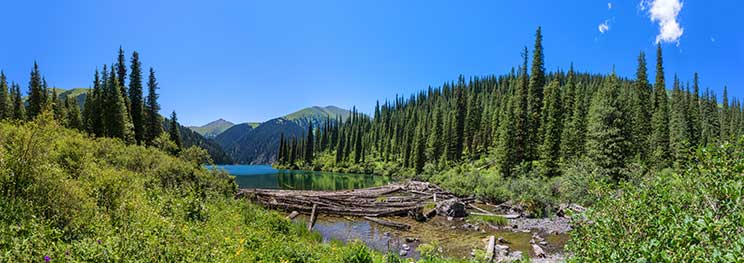Environmental Finance Center
In a competitive application process RCAC was selected as the Environmental Finance Center (EFC) for U.S. Environmental Protection Agency (EPA) Region 10 – Alaska, Washington, Oregon and Idaho.
There are many challenges in infrastructure maintenance and development. During the next 20 years $600 billion in infrastructure projects will need to be completed to protect public health yet budget constraints are an increasing reality. To help address the challenge of infrastructure affordability, the EFC is developing financial models and tools and collecting and sharing resources so small rural communities and Tribes can move forward with innovative solutions to address the “how to pay for it” question.
Submit a Request for Assistance
Our focus
The Environmental Finance Center is a collaborative, responsive and innovative EFC—a think tank with implementation. We have a broad range of expertise to help communities address infrastructure financing needs with a focus on providing a holistic approach to infrastructure finance. By developing culturally considerate methods and tools, and by helping communities address technical and managerial challenges that impact financial sustainability, we help you improve the financial health of your community.
Through the EFC, Tribes and local communities will have practical, real-world training, technical assistance and information to increase the sustainability of their financing systems, the systems that support all of their environmental and public health utilities and facilities – water, wastewater, solid waste and other disciplines. In addition, the EFC is active in the climate adaptation and resiliency finance policy discussion.
For more information, contact RCAC’s main office at (916) 447-2854 and request Dessa Wells, regional field manager, Community & Environmental Services.
Our services
The EFC supports and assists communities move in the direction of sustainability by providing the following services:
- Develop and provide financial modules and tools including a very small system asset management plan, a Tribal source water protection plan template and a decision tree for communities impacted by adverse environmental conditions that must make the “adapt-in-place or relocate” decision.
- Collect and share infrastructure finance resources that communities can review or adapt and use to move forward with innovative financial solutions.
- Develop and deliver hands-on, adult learner centered financial and environmental training on topics that include source water protection, Tribal infrastructure financing and asset management.
- Provide direct technical assistance to small rural communities and Tribes as they plan for and work toward financial sustainability for their environmental and public health utilities and facilities.
- Participate in adaptation and resiliency research, policy development and finance advocacy for those communities impacted by adverse environmental conditions; facilitate source water protection dialog opportunities; support Tribal infrastructure finance education and provide logistics and facilitation services for other financial and environmental meetings, workshops and conferences.
Our projects
- Very small system asset management project: Development of a GIS Hub, smart phone data collection app and Excel spreadsheets to produce a simple asset management plan for the very smallest utilities.
- IACC (Infrastructure Assistance Coordinating Council) Tribal outreach project: Outreach to Tribes in the state of Washington to encourage participation in the IACC Infrastructure Funding Conference to foster infrastructure finance dialog.
- Decision tree and financial modules project: Development of a culturally considerate financial module/decision tree for communities impacted by adverse environmental conditions who are making the adapt-in-place vs. relocation decision. This work focuses on community infrastructure finance decisions for location of origin including restoration, relocation and clean up and relocation/site expansion needs including infrastructure options and development.
- Tribal source water protection project: Development of a Tribal Source Water Protection Plan template, template trainings hosted by Native American Water Masters Association (NAWMA) and direct technical assistance for Tribal systems to complete source water protection plans.
- Agency and small utility source water protection workshops project: Facilitation of workshops in EPA Region 10 to bring agency land owners and planners together with small rural water systems and Tribes that rely on drinking water from the watershed.


